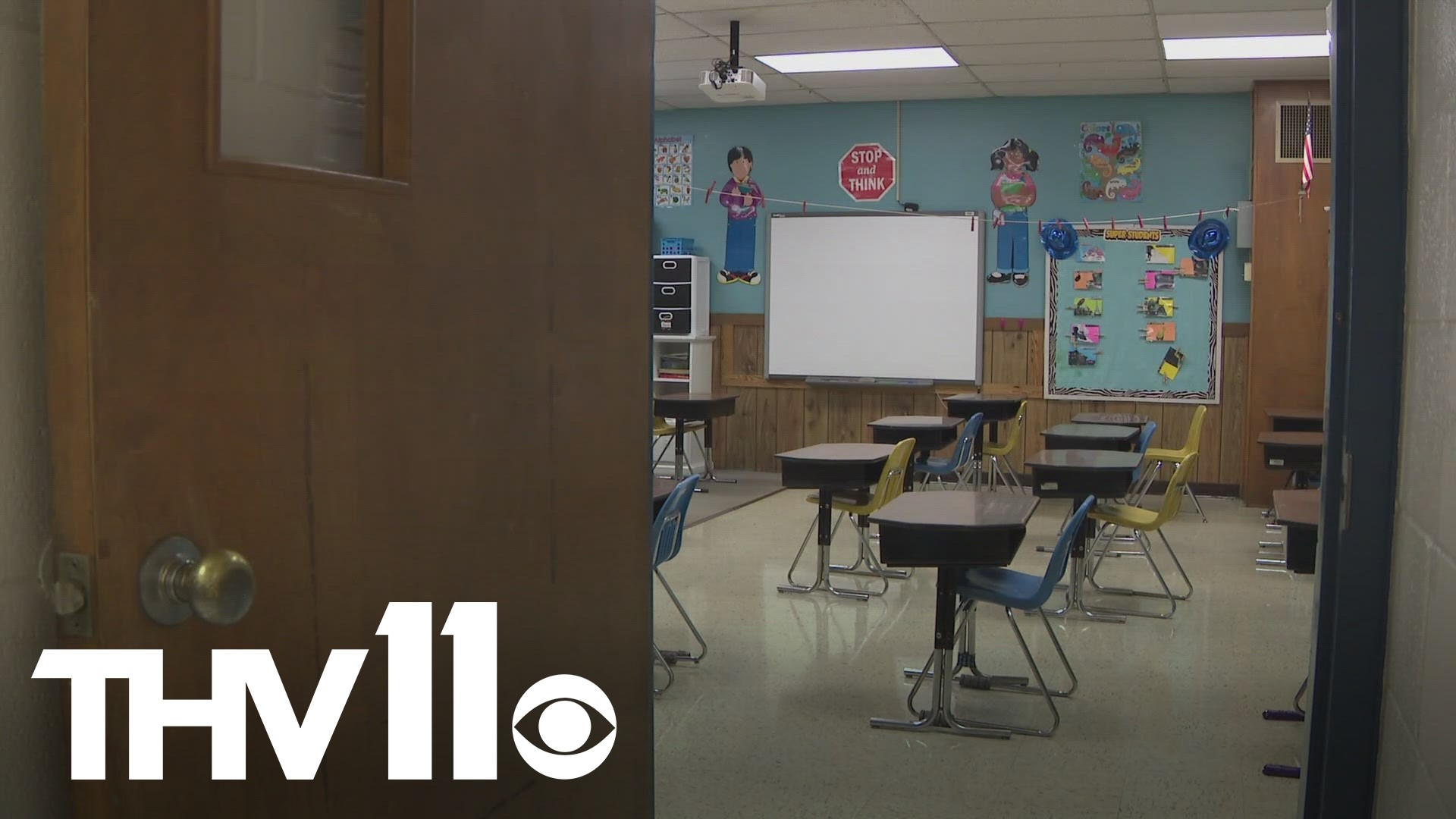ARKANSAS, USA — Should spanking be allowed as a form of behavior correction in Arkansas schools?
It's a simple question, and for the first time in one poll's lifetime, Arkansans may be leaning against corporal punishment.
"What we found is that this year, the percentage of people supporting teachers being allowed to spank in schools is now actually below half," Janine Parry said.
Parry is a professor of political science at the University of Arkansas and the director of the Arkansas Poll, which was released on Monday and focuses on a wide range of topics.
Many of them are political, including the approval ratings of our elected officials. However, there are also interest-gauging questions, like the opinion on school spanking.
"Those who are less likely to support spanking, or think it should not be allowed, are found in cities and suburbs," Parry said. "Arkansas is increasingly more of that and less of the really rural areas."
That poll, conducted by a third-party company with over 800 participants, shows that support for the punishment has waned over the years.
In 2009, the first time the question was asked, nearly 64% said they supported it. Now, that number sits at 44% support.
Data from the state backs up the rural and suburban case presented by Parry. Data from the Arkansas Department of Education shows some of our biggest districts. For example, Little Rock, North Little Rock, Pulaski County Special School District and Cabot have had no corporal punishment in the last school year.
A spokesperson for PCSSD said they do not do that in the district.
Smaller districts we spoke with, such as Perryville, White Hall and Bauxite, have had instances of corporal punishment.
According to Bauxite Superintendent Matt Donaghy, the school only allows it with parental permission.
As for how those polled voted, it's not a clear-cut answer.
"It's not 80/20 or 90/10," Parry said. "Like so much of our political conversation right now, the partisan landscape, there's much more overlap than that."
As for why this shift happened, Parry said it could be as simple as the passing of time.
"I just think that it's been kind of a slow migration into realizing, at least for most Arkansans to realize," Parry said. "To be in situations where it's just so much less common, it becomes something that they don't think of as normal or desirable anymore."
To read the complete Arkansas Poll, click here.

